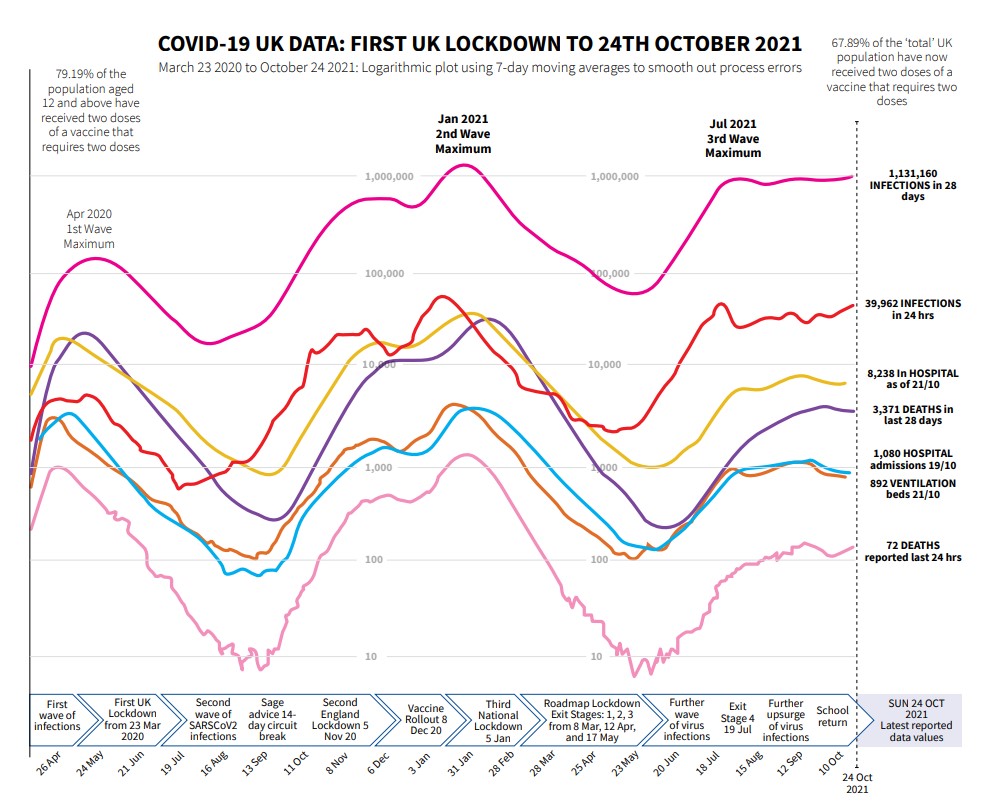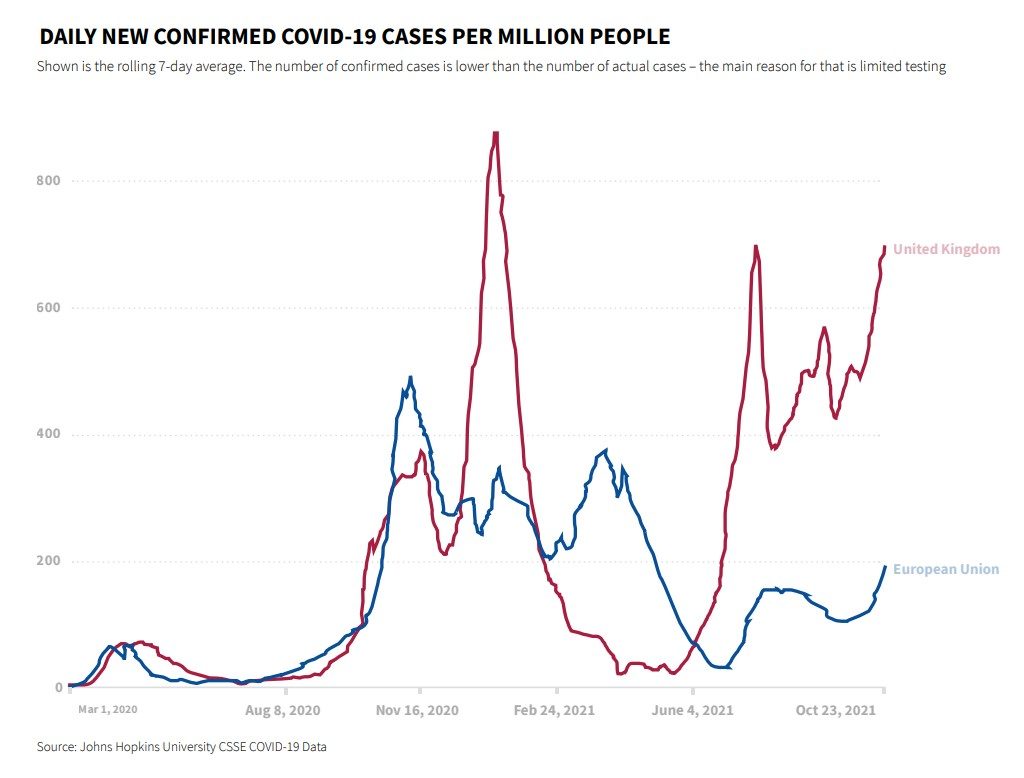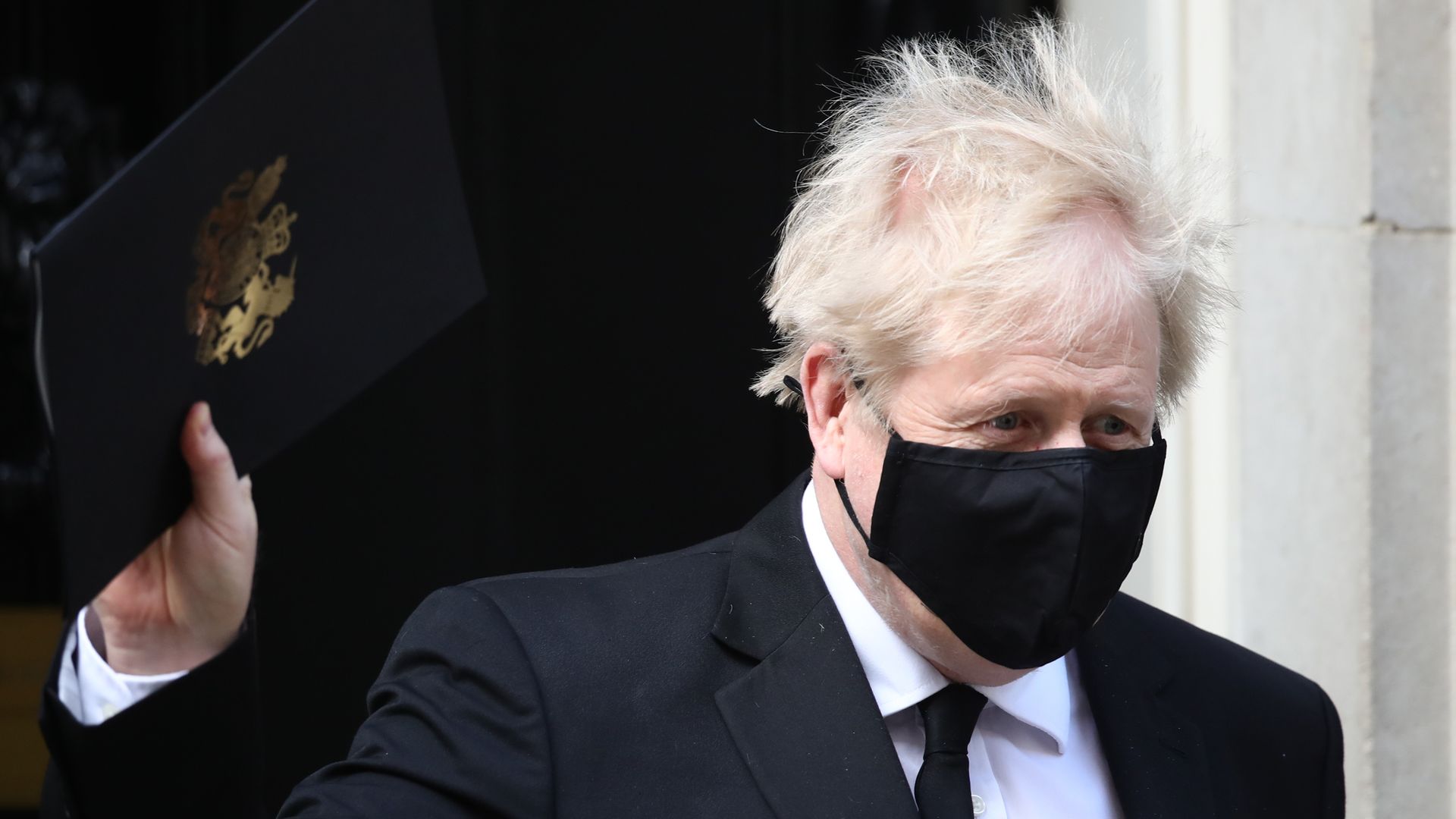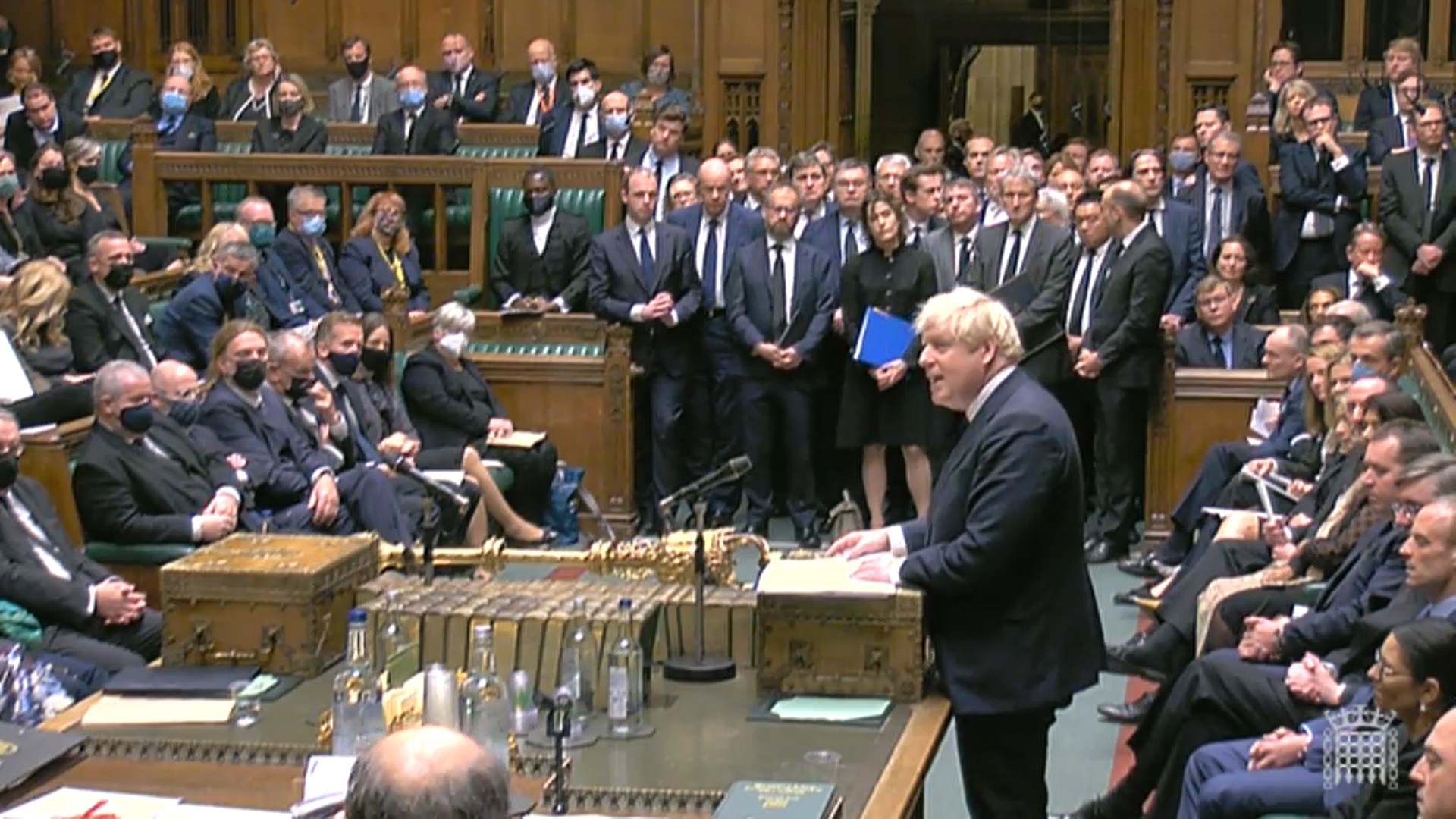You’d be forgiven for thinking that the pandemic reawakened last week. In fact, it never went to sleep.
Boris Johnson’s Freedom Day on July 19 created a dangerous illusion that the pandemic was over. This feeling of complacency was aided by ending the regular Covid press briefings, by parliament’s summer recess, the scramble for foreign holidays, party conferences, the lack of published detail from SAGE meetings, Brexit concerns and endless diversions across the media.
Now, with data reaching levels not seen for months, Covid-19 is firmly back on the agenda.
Was July 19 Freedom Day for us, or Freedom Day for the virus? In the three months since, it has spread more freely, with over three million new reported cases, and over 10,000 further deaths. Hospitalisations and use of ventilation beds have both increased significantly
In the past 28 days of ‘Freedom’, over 3,300 deaths due to Covid-19 were reported in the UK, while hundreds of thousands of people affected by Long Covid are now trying to ‘live with it’.
On a personal note, I’m struck by the nature of this illness, and its severe impact on my son and his partner. For over a year, like thousands, they have struggled to understand and come to terms with the growing number of persistent, painful, and debilitating effects.
The NHS is unable to deal with the tsunami of need created by an illness no one fully understands. But for sure, Covid-19 is not like the flu.
Our daughter and her friends at university experience other challenges; different approaches to face-to-face learning and support for students, amid a sense from Downing Street that the pandemic is over. It leads one to ask what lessons the government has learned so far.
The recent ‘Coronavirus: lessons learned to date’ report provides a perspective that is critical in both senses of the word. Criticised were the UK’s lack of preparedness for the pandemic and the impact of contradicting and confusing messaging. Witness input revealed that structures for offering scientific advice lacked transparency, international representation, and structured challenge. The report avoids “pointing fingers of blame”, but one is left wondering who was in control, and whether a cross-party coalition would have delivered better outcomes.
The report states, “All learning needs to happen rapidly”, but evidence suggests this learning isn’t happening and hadn’t happened effectively prior to the pandemic.

The government has gambled on vaccines as virtually the only way out of this pandemic. But last Sunday, professor Adam Finn, a member of the joint committee on vaccination and immunisation, told Trevor Phillips on Sky News, “Vaccines alone are not enough to stop a mid-winter crisis”.
Concerns among experts are reaching a crescendo and stress the need for stronger government messages about the value of wearing face coverings, the importance of social distancing and the need to avoid crowded indoor spaces.
The government must get its act together. It is not good enough to see ministers, or any MPs, without face coverings in the Commons.
Failure to address vital controls, and delays in decision-making, must be corrected urgently; and include improved, appropriately funded test, trace, and isolate strategies.
The faltering roll-out of Covid-19 vaccines, previously cited by ministers as world-leading, is also becoming a contributory factor to our situation. Dr Bharat Pankhania, senior clinical lecturer at the University of Exeter, and a former Public Health England consultant on communicable disease control, told me: “It’s important to act extensively and early; putting the brakes on human-to-human interactions now, to bring down and keep down infection numbers; important too, to address poor uptake of vaccines in the school-age group, and to control seasonal influenza”.
The government’s ‘softly, softly’ approach has failed. It’s time to level with the public and deliver more impactful, and honest messages. A good start would be to make clear that this pandemic is far from over, but Dr Eric Feigl-Ding, a renowned epidemiologist and health economist, would go even further. He told me, “We need to combine all actions, including roll-out of booster vaccine, aggressively not haphazardly, and extend the vaccine programme to 5- to 11-year-olds, to create a defensive high wall, not a series of smaller bumps”.
Government must also remember that the virus preys on the most vulnerable in our communities, those with least resistance to its attack. There is a basic dishonesty in the catchphrase “learning to live with the virus”.
This is deliberate, disturbing, and hurtful, particularly for those tens of thousands who have lost loved ones. It’s unacceptable language, which attempts to normalise SARSCoV-2 virus infections, hospitalisations, and deaths.
Mistakenly, government remains stubbornly fixed on its Plan A. But pressure is growing, opposition party politicians, scientific and medical experts, and leaders of organisations across the health and care sector, are echoing concerns that the UK government is not taking appropriate action; action that is vital to protect the public – the prime function of any government.
Dr Chaand Nagpaul, a BMA council chair, summed up the situation like this: “The government has taken its foot off the brake, giving the impression that the pandemic is behind us, and that life has returned to normal.

“It’s wilfully negligent of the Westminster government not to be taking any further action to reduce the spread of infection, such as mandatory mask-wearing, physical distancing and ventilation requirements in high-risk settings. The reality today is an unacceptable rate of infections, hospitalisations and deaths, unheard of in similar European nations.”
Downing Street is clearly hoping an accelerated vaccine booster programme will prevent the need for additional measures – a massive assumption, a huge mistake. The virus worryingly remains one step ahead of us; and Covid history is at risk of repeating itself, or worse.
The government say it is watching and waiting. Over a year ago SAGE said we should take action to stop infections. The government did not act but watched and waited then, and that’s why we had such a dreadful Christmas.
Sir Jeremy Farrar, the medical researcher and director of the Wellcome Trust, told me via Twitter that these lessons should be learned from a year ago: “Act early. Delaying decisions means tougher interventions later and avoidable deaths. New variants more likely when high transmission. UK has international responsibilities to not export new variants.”
Other European countries, and beyond, are faring better than Britain; driven by stricter controls and with better public compliance. But the political culture in places like New Zealand genuinely encourages collaboration, balance, and honesty. Another fundamental problem in the UK has been the government’s failure to follow expert advice – including that of its most senior advisers. Government is at that point again – disregarding data, ignoring expert advice.
Meanwhile, infections across the UK are at levels that will take weeks to bring down and are bound to continue to impact badly on the NHS. Trusts are experiencing a situation like no other before. As Dr Katherine Henderson, president of the Royal College of Emergency Medicine, told the Independent: “Even before the pandemic, emergency departments were struggling, a consequence of under resourcing. Now we are going into what will likely be the hardest winter the NHS has ever had.”
Britain needs decisive leadership more than ever. A plan that delivers, based on ‘sage’ advice, with the right resources, communications, commitment, and energy. Simple but strong messages, with mandates to ensure compliance.
Clarity about the requirement to wear effective face coverings, including schools, and avoiding crowded spaces; resources to ensure effective ventilation in schools, and other workplaces; investment in improving vaccine rollout; and a decision on vaccinating 11-year-olds, and younger children.
The die has been cast. Infections will continue to challenge an already under-pressure NHS, as increasingly more people require treatment and intensive care; and as a result, sadly, many more will be unable to “live with the virus”, if the government continues to delay.
The time has come for the government to listen to its experts, and to implement the right plan.
Dr Joe Pajak has been a governor of an NHS Foundation Trust hospital for seven years and is a fellow of the Royal Society of Chemistry. He produces a daily piece that tracks the UK’s Covid-19 data and is published online by PMP Magazine at vip.politicsmeanspolitics.com



